Welcome to the June 2015 issue of the Global Washington newsletter.
IN THIS ISSUE
- Letter from our Executive Director
- Question of the Month
- In the News: Impactful Innovation: Washington State’s Technology Culture Drives New Solutions in Global Development
- Featured Organization: Mountain Safety Research
- Changemaker: Eric Stowe, Founder & Director, Splash
- Opposing Views: If Not Technology, What?
- GlobalWA Member Events
- Career Center
- GlobalWA Events
Letter from our Executive Director
The Seattle region is known for being “innovative,” primarily because of Microsoft, Amazon and our numerous start-ups. But does this translate to global development? Do we do things differently here because we have successful entrepreneurs and tech professionals who also believe in making a difference in the world? I think we do.
Along with world-class research and development for new solutions in global health, agriculture, financial inclusion, job training and education, we are home to non-profits that understand how to best deliver and implement these solutions in the communities they serve. Cross-sector partnerships are critical to get to scale and to create appropriate technologies. This was the topic of discussion at our June 9 event where panelists from Global Good, Shift Labs and MSR addressed the challenges of financing and taking low-cost health products to market in developing countries.
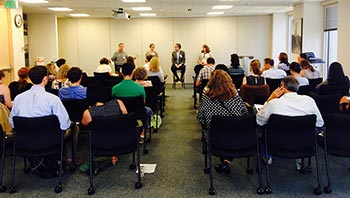 As we foster and celebrate innovation, should we assume that most of the world’s problems can be solved with technology? This will be the topic of debate later this month when author Kentaro Toyama visits GlobalWA to discuss ideas from his new book, Geek Heresy: Rescuing Social Change from the Cult of Technology.
As we foster and celebrate innovation, should we assume that most of the world’s problems can be solved with technology? This will be the topic of debate later this month when author Kentaro Toyama visits GlobalWA to discuss ideas from his new book, Geek Heresy: Rescuing Social Change from the Cult of Technology.
Seattle should certainly be known for being an innovative city. We should also be known for our innovative solutions that are having a transformational impact on society. We are leading the way in “disruptive development.”

Kristen Dailey
Executive Director
Question of the Month
 GlobalWA will ask you a question every month and synthesize the responses and make available to our member organizations. Please take a moment to respond to the question for this month:
GlobalWA will ask you a question every month and synthesize the responses and make available to our member organizations. Please take a moment to respond to the question for this month:
Do you plan on taking advantage of the 2015 Emirates Airline discount offer for GlobalWA members?
In the News
Impactful Innovation: Washington State’s Technology Culture Drives New Solutions in Global Development
 It’s not hard to imagine how a city like Seattle could become a hub for breakthrough innovations in global development. Washington state is home to many of the companies that are creating the future of technology. We also play host to the most recognizable names in global health. As we dig a bit deeper, however, we uncover a diverse community of for-profits, nonprofits, academic and philanthropic groups dedicated to changing the face of global development through innovative ideas and cutting-edge technologies.
It’s not hard to imagine how a city like Seattle could become a hub for breakthrough innovations in global development. Washington state is home to many of the companies that are creating the future of technology. We also play host to the most recognizable names in global health. As we dig a bit deeper, however, we uncover a diverse community of for-profits, nonprofits, academic and philanthropic groups dedicated to changing the face of global development through innovative ideas and cutting-edge technologies.
These organizations understand that technology is not a panacea when it comes to alleviating global poverty. They see innovative technologies as tools to improve the efficiency and effectiveness of development work rather than solutions in and of themselves. These organizations also know that technology can potentially exacerbate poverty and inequity, so they also focus on “inclusive innovations” — breakthroughs intentionally designed to reduce poverty in low-resource settings.
Information and Communication Technologies for Development (ICT4D) describes the space in which technological innovation complements and enhances global development to bridge the digital divide, reduce poverty and improve livelihoods throughout the developing world. Because technology plays an increasingly important role in our lives, it’s important to understand how it’s changing the nature of development in diverse sectors such as:
Health: With increased access to information, technology enables health workers and patients to make better decisions, map health risks/outbreaks in real time and improve the overall efficiency of health systems. Solutions can be “low-tech,” as is the case with Days for Girls and IMEC. They can also be “high-tech,” as is the case with vaccine development work at PATH. In addition, Washington state has been a leader in the design of innovative water treatment solutions, as was highlighted in our March newsletter. Over 20 Global Washington members focus on access to clean water and Splash, Cascade Designs and Water for Humans stand out for their innovative devices.
Rural livelihoods and agriculture: Building on the success of M-Pesa in mobile finance, companies and NGOs work with mobile technology to provide people with information they need to improve their lives. For example, farmers in rural areas can gain access to information like market prices and agricultural best practices to boost yield and quality. In April, we wrote about the partnership between Grameen Foundation and Starbucks that uses mobile technology to connect farmers to markets with real-time information and create tailored interventions to improve the quality and quantity of coffee production in Colombia.
Climate and emergency response: New technologies provide real time information about environmental issues and how they affect people. For example, during natural disasters, many people use mobile phones to quickly disseminate information across difficult geographical terrain, find and help victims, transfer relief funds and manage disaster response efforts. Jet City Stove Works helps transform old tech into stoves that decrease the amount of carbon released into the atmosphere, thereby contributing to a cleaner environment and healthier families.
Education: As technology makes our world smaller, breakthroughs in education have been instrumental in developing countries. Access to education is fundamental to one’s success and education-focused technologies have had an impact on economic development, gender equality, health and poverty reduction. Literacy Bridge is using its Talking Book to provide education and combat illiteracy in Ghana.
People with disabilities: Technologies that provide new ways for people to see, hear and move reduce the barriers to entry for those with disabilities by integrating them into society and helping them gain employment. Two organizations that lead these efforts, Mobility Outreach International and Mobility Builders, call Seattle home.
Civic engagement: Social media platforms provide a space for individuals to engage with public officials and participate in conversations on topics such as spending, corruption and security.
Given the wide range of potential applications for technology in the developing world, as well as Seattle’s technology culture, it is no surprise that our state is home to a long list of innovative organizations. These Global Washington members are tackling global poverty in innovative ways, and weaving the fabric that connects Washington state to the world.
Cascade Designs: Cascade Designs’ Mountain Safety Research (MSR) brand started a global health department in the wake of the 2004 Southeast Asia tsunami. MSR Global Health focuses on improving access to food, water, shelter and mobility. They recently launched the SE200™ Community Chlorine Maker, a small, portable and easily-to-use chlorine generator. With a push of a button, the device creates chlorine from salt, water and electricity in just five minutes. Each batch generates enough chlorine to purify 200 liters of water. www.cascadedesigns.com
Days for Girls International: Days for Girls International provides quality feminine hygiene products for girls by assembling and distributing feminine hygiene kits to areas in need. Girls around the world suffer indignities, infections and exploitation trying to stay in school without proper equipment for their menstrual needs. Days for Girls International works to ensure that every girl is safe and dignified with access to the proper information and supplies to stay healthy. www.daysforgirls.org
Engineers without Borders: Engineers without Borders designs and implements innovative engineering solutions for developing communities by addressing immediate needs, ranging from water supply and sanitation to information gathering and agriculture. The organization helped the Nepalese government design a solution to a water contaminant caused by improperly disposed human waste on Mt. Everest. A team based out of Seattle went to Nepal and designed the Biogas Digester system which disposes human waste in an environmentally friendly way. www.ewbseattle.org
The Bill and Melinda Gates Foundation: The Gates Foundation works to lift the world’s poorest people out of poverty. The Foundation has taken great strides in preventing, diagnosing, treating and eradicating a number of infectious diseases. Through their support and worldwide distribution of medical innovations, the Foundation has made an enormous impact. One of the many new innovations the Gates Foundation is currently pursuing is an economical single-dose malaria treatment. www.gatesfoundation.org
Global Partnerships: Global Partnerships is an impact investor specializing in heath, micro- entrepreneurship and green technology for people living in poverty. Innovative investment strategies integrate developing communities with the organization’s partners to create sustainable, mutually beneficial relationships. Global Partnerships uses value chain investments by analyzing every step a product must go through – from raw materials to final product – to equip developing communities with sustainable, holistic economic systems. www.globalpartnerships.org
Grameen Foundation: The Grameen Foundation connects some of the world’s poorest people with financial services and resources. Through the use of mobile phone technology (MOTECH), the Foundation provides information regarding good farming practices, weather reports and prices for goods, effectively increasing productivity and crop yields for 246,000 farmers in Colombia, Guatemala and Uganda. Mobile phone technologies also serve 3 million people in eight countries by sending weekly advice on maternal and infant care. www.grameenfoundation.org
IMEC: IMEC specializes in providing IMEC Suites – fully supplied rooms outfitted with the necessary equipment to operate a service or department. These Suites supply doctors, teachers and farmers with the materials they need to serve their communities. In the medical field, IMEC offers 40 different types of Suites which, when combined, can equip an entire hospital. An IMEC Farm Suite contains all of the tools a small farmer needs to create and sustain a productive farm. Education Suites provide teachers, schools and training centers with the tools they need to educate their students. imecamerica.org
Jet City StoveWorks: Jet City StoveWorks designs, tests and produces stoves that burn renewable fuels that are easily accessible in developing communities. One of Jet City’s current projects is called the Jiko Stafi, a whole-seed burning stove which uses Jatropha, a plant often found in the southern hemisphere. Not only does the Jiko Stafi provide an inexpensive alternative to traditional stoves, it burns much cleaner making it a healthier option, as well. www.jetcitystoveworks.com
Literacy Bridge: Through Literacy Bridge’s Talking Book program, the organization provides an innovative, low-cost audio computer system designed to fulfill the learning needs of illiterate agricultural populations. Rather than having an agriculture extension or health agent visit remote locations to teach locals who have no method of taking notes, the Talking Book gives people who are unable to read and write an accessible medium for receiving critical information. www.literacybridge.org
Microsoft: Microsoft is in the business of connecting the world through the use of technology. International calling on Windows Phones and Skype allows for low-cost communication without internet connectivity. Microsoft is the leading mobile phone supplier globally, giving people near-unlimited information that is accessible from their pockets. The company has also recently begun providing disaster relief with its Humanitarian Toolbox which connects victims of disasters with organizations who can help them recover and rebuild. www.microsoft.com
Mobility Builders: Mobility Builders provides affordable, locally-built wheelchairs for children with disabilities in developing countries. By increasing their mobility, the organization gives these children the opportunity to attend school, improve health and interact with the community. Moreover, their parents can maintain employment as the need for home care decreases. Mobility Builders offers trainings and resources to give children with disabilities around the world a new level of autonomy. www.mobilitybuilders.org
Mobility Outreach International (MOI): Mobility Outreach International strengthens developing communities by training individuals in prosthetic care, orthopedic surgeries and clubfoot to offer children and adults with orthopedic disabilities the opportunity to regain their mobility. MOI increases in-county production of prosthetic knees and feet, bringing people around the world the gift of mobility. This innovative strategy allows local healthcare professionals better address their patients’ needs in a sustainable and accessible manner. mobilityoi.org
PATH: PATH has established itself as a global health leader by offering a multidimensional approach to solving challenges and by providing innovative vaccines, drugs, diagnostics, devices and services to people worldwide. PATH identifies issues and creates inexpensive, sustainable solutions. The organization recently developed a creative solution to solve the issue of vaccines being improperly stored by creating temperature-stable vaccines, freeze-safe vaccine carriers and vaccine vial monitors to alert workers when a vaccine has been damaged by heat. www.path.org
Splash: Splash sets the standard for clean water across the globe. By working with foreign governments and local businesses, the organization creates sustainable, safe water projects for kids living in urban poverty. Through innovative water technologies, Splash provides clean water to 310,067 children in eight developing countries daily. Splash’s water purification system includes: Mesh Strainers, UF Membranes, Carbon Filters and UV Disinfection, which filter particles, bacteria, viruses, odors and microbes exceeding World Health Organization’s standards for drinking water. splash.org
TASCHA: The Technology & Social Change Group (TASCHA) at the University of Washington Information School explores the design, use and effects of information and communication technologies in communities facing social and economic challenges. TASCHA has conducted research on the availability of Massive Open Online Courses (MOOCs). While MOOCs have the potential to expand education and career training, very few people in developing countries have access to them. To combat the dearth of widespread usage of MOOCs, TASCHA created a project to alleviate the data gap and develop a framework for training young workforces using MOOCs. tascha.uw.edu
Water for Humans: Water for Humans designs low-cost, clean water and sanitation solutions to developing populations. The organization is currently working in five remote mountain villages in northern Oaxaca to harvest rainwater for the dry season. In the past, these communities have encountered serious drought issues during the dry season. They now have the resources to continue agricultural production and enjoy safe drinking water during the hardest seasons of the year. waterforhumans.org
Featured Organization
Mountain Safety Research
By Jeff Halvorson
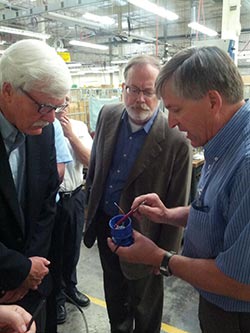 Truly successful public-private partnerships are hard to come by for a variety of reasons. So when one works, it’s a big deal. Especially if it involves the military, two foundations, an industry association, two global NGOs and an outdoor gear manufacturing company. In 1998, Global Washington member Mountain Safety Research (MSR) was granted government funding from the Defense Advanced Research Projects Agency (DARPA) to miniaturize the municipal electro-chlorinator technology to a man-portable, individual scale water treatment system. Almost 20 years later, after support from the U.S. Marine Corps to improve the ease-of-use of the concept, now usable by untrained operators, this same technology is increasing access to safe water for people who live in low resource communities.
Truly successful public-private partnerships are hard to come by for a variety of reasons. So when one works, it’s a big deal. Especially if it involves the military, two foundations, an industry association, two global NGOs and an outdoor gear manufacturing company. In 1998, Global Washington member Mountain Safety Research (MSR) was granted government funding from the Defense Advanced Research Projects Agency (DARPA) to miniaturize the municipal electro-chlorinator technology to a man-portable, individual scale water treatment system. Almost 20 years later, after support from the U.S. Marine Corps to improve the ease-of-use of the concept, now usable by untrained operators, this same technology is increasing access to safe water for people who live in low resource communities.
In its early days, MSR Global Health faced a challenge. They had decided to utilize their people and core strengths as a company to make a sustainable global health impact by commercializing reliable and improving access to technical solutions in low resource settings. However, they had little access to developing world communities or low resource market information. How would MSR’s Global Health Division design a reliable product utilizing their robust design process that requires feedback from the end user?
Enter another Global Washington member — PATH. Well-versed in accelerating innovation to improve access to health in developing world settings, PATH had the people and complementary experience in carrying out field studies, translating needs from the communities into a language that designers can understand, most importantly, identifying a need for a small community water treatment system. PATH’s on-the-ground experience made them the perfect co-developer for a device that has the potential to impact 50-200 people in a rural or peri-urban environment. The SE200TM Community Chlorine Maker was born.
The first field testing of the SE200 was in Korogocho, a slum outside Nairobi, Kenya. PATH and MSR learned a great deal from the people of Korogocho in terms of need, usability, and even the color of the device. MSR Global Health and PATH developed the SE200 through multiple design iterations, translating user feedback into technical features. PATH recently released this video which highlights the design and field testing of the new product.
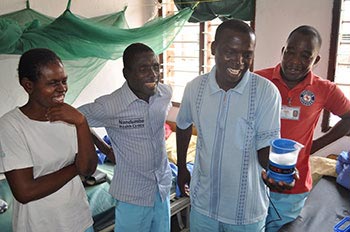 Over the course of eight years, the PATH and MSR partnership grew to include the Laird Norton Family Foundation, the Lemelson Foundation and Washington Global Health Alliance, the three principle funders. And World Vision partnered to lead field testing in Kenya and Mali. On May 19, MSR, PATH and World Vision announced the launch of the SE200TM Community Chlorine Maker and highlighted the benefits of their unique partnership, a critical factor in the success of the commercialization effort.
Over the course of eight years, the PATH and MSR partnership grew to include the Laird Norton Family Foundation, the Lemelson Foundation and Washington Global Health Alliance, the three principle funders. And World Vision partnered to lead field testing in Kenya and Mali. On May 19, MSR, PATH and World Vision announced the launch of the SE200TM Community Chlorine Maker and highlighted the benefits of their unique partnership, a critical factor in the success of the commercialization effort.
Held at MSR’s headquarters in the SODO district of Seattle, the launch event gave local media and community members an opportunity to meet the individuals behind the device’s 15+ years of development. Speakers included Joe McSwiney, President of Cascade Designs, MSR Global Health’s parent company; Laura McLaughlin, the Director of MSR Global Health; Glenn Austin, PATH’s Senior Advisor of Product Development; and Brian Gower, World Vision’s Director of WASH Funding Strategy. The event also served as the official birth of MSR’s new Global Health Division which will focus on products specifically designed to increase access to basic human needs in low resource settings.
During a panel discussion, Gower highlighted the core strengths that each partner brought to the table. MSR creates high quality gear that works in extreme environments and understands how to make what people want. PATH understands science and technology that can serve developing communities. And, World Vision brings a global portfolio of projects which enabled the new technology to quickly get tested and evaluated.
The SE200 is a great example of what’s possible when diverse actors work together to address a social challenge. Many in the development community speak of shared value, insisting that companies can address and solve social challenges through their core business model, thereby creating both economic and social value. MSR does this and does it very well. When looking at successful public-private partnerships like the SE200 collaboration, we may just be looking at the future of development work.
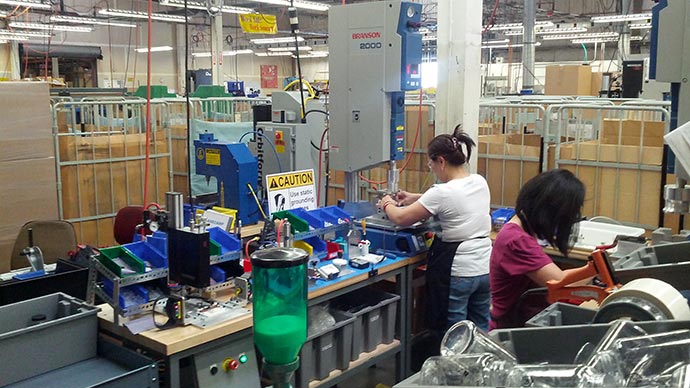 What’s next? Currently, PATH and MSR are developing a line of next-generation chlorine-generating products, including larger-capacity products that could produce enough chlorine for drinking water treatment or infection prevention and control in health care settings, refugee camps, or for use during disaster response efforts. While this is no small feat, it is exactly why MSR Global Health exists – to tackle thorny problems with some of the brightest engineers, scientists and designers in the business.
What’s next? Currently, PATH and MSR are developing a line of next-generation chlorine-generating products, including larger-capacity products that could produce enough chlorine for drinking water treatment or infection prevention and control in health care settings, refugee camps, or for use during disaster response efforts. While this is no small feat, it is exactly why MSR Global Health exists – to tackle thorny problems with some of the brightest engineers, scientists and designers in the business.
Changemaker
Eric Stowe, Founder & Director, Splash
By Jeff Halvorson
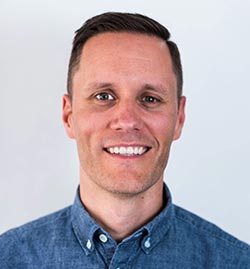 Global development professionals often throw around the phrase “working ourselves out of a job.” After all, that’s the goal when you’re aiming to improve lives and conditions in poor communities across the globe. But how many organizations can show you exactly how they will increase their impact while at the same time decrease the number of people tasked with making it happen? Eric Stowe, Founder and Director of Global Washington member Splash and past winner of Puget Sound Business Journal’s 40 Under 40, is doing just that.
Global development professionals often throw around the phrase “working ourselves out of a job.” After all, that’s the goal when you’re aiming to improve lives and conditions in poor communities across the globe. But how many organizations can show you exactly how they will increase their impact while at the same time decrease the number of people tasked with making it happen? Eric Stowe, Founder and Director of Global Washington member Splash and past winner of Puget Sound Business Journal’s 40 Under 40, is doing just that.
Stowe has gained notoriety recently with his thought-provoking TEDx talk, How to Kill Your Charity, and article in the Stanford Social Innovation Review, If the Goal is Scale, Promote Theft. At Splash, he leads an NGO that challenges conventional wisdom about effective development and the role of organizations dedicated to addressing global challenges. As a social enterprise committed to social justice, Splash has redefined “scale” and “impact” through a novel open sourcing model that prioritizes collaboration and learning.
Splash has roots in China, where Stowe set out to get clean water to every child in every orphanage across the country. Because there are orphanages in 31 provinces and 1,200 cities across China, the solution needed to be one that could be replicated throughout the country. This meant it needed local partners, from both the private and public sectors, as well as a technology that could work at scale. Luckily for Splash, the technology already existed.
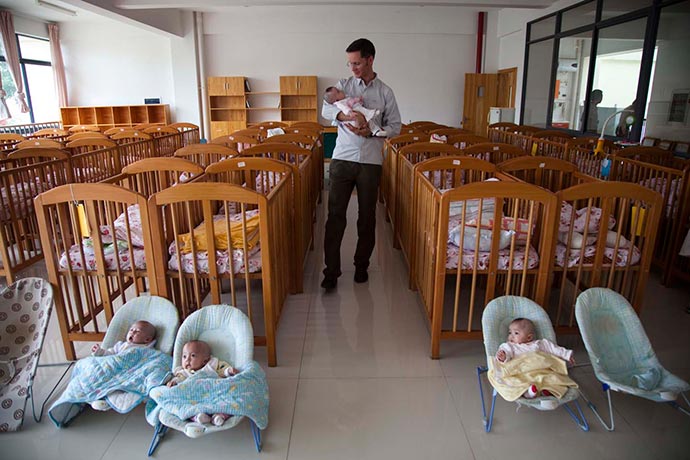 Stowe recognized that McDonald’s approach to water could be used to bring clean water to millions of children in the developing world. If McDonald’s can get clean water to its customers, that same system could get clean water to schoolchildren, he thought. There was no need to reinvent the wheel but rather, like many successful entrepreneurs, he could tweak a proven model to make it appropriate for a new use.
Stowe recognized that McDonald’s approach to water could be used to bring clean water to millions of children in the developing world. If McDonald’s can get clean water to its customers, that same system could get clean water to schoolchildren, he thought. There was no need to reinvent the wheel but rather, like many successful entrepreneurs, he could tweak a proven model to make it appropriate for a new use.
But world-class technology without a great team and proven business model doesn’t lead to success. So Stowe surrounded himself with creative thinkers and people who were dedicated to doing development differently. They went on to hone their business plan to work in China, Nepal, India, Ethiopia and Southeast Asia. By using pre-existing technology and supply chains, Splash is able to put high-quality products into places in our world that usually go without clean water. And, through partnerships with local governments and businesses, the economically sustainable system will someday allow Splash to retreat, literally “working itself out of a job.”
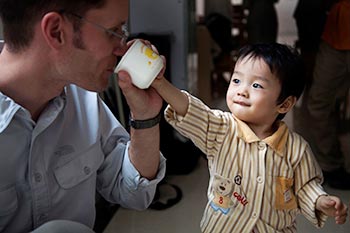 Stowe envisions Splash evolving from a program-driven NGO, meaning one that works tirelessly on the ground, to more of a thought leader when it comes to clean water and development work. As the curator of a network of organizations trained to create and manage successful water programs, Splash grows its impact without growing its footprint. And it actively plans its departure by training partners to take over as social enterprises that don’t need ongoing funding from an international charity. Thus, Splash moves into the role of advisor, impact investor and industry champion.
Stowe envisions Splash evolving from a program-driven NGO, meaning one that works tirelessly on the ground, to more of a thought leader when it comes to clean water and development work. As the curator of a network of organizations trained to create and manage successful water programs, Splash grows its impact without growing its footprint. And it actively plans its departure by training partners to take over as social enterprises that don’t need ongoing funding from an international charity. Thus, Splash moves into the role of advisor, impact investor and industry champion.
Unlike organizations that evolve in response to the changing competitive landscape, Splash has built its evolution into the mission. That is one of Splash’s most notable innovations — a business model that is all about the exit strategy.
The Splash team is currently being put to the test in Nepal, which is home to Splash’s largest country program. Splash’s water systems had already reached about 70% of the school children in Kathmandu and the recent earthquake only strengthened the team’s resolve to reach the city’s 650 public schools and incorporate long-term water solutions into emergency relief operations. With thousands of people living in make-shift camps in school courtyards, one of the few places safe from building collapse, Stowe’s team is racing to provide water to thousands of people in the Kathmandu Valley. Click here to donate to Splash’s efforts in Nepal
Opposing Views
If Not Technology, What?
By Kentaro Toyama
 In India’s famous Hole-in-the-Wall project, ruggedized computers were placed in slums and rural villages for neighborhood children to use. Its founder, Sugata Mitra, claimed that with no supervision, children taught themselves computer literacy, English, and even molecular biology. Back in 2005 before the project became widely known, Mitra came to speak to a group of us about the project. We were a new research team in Bangalore that I had started while at Microsoft, with a mission to explore how digital technology could serve international development.
In India’s famous Hole-in-the-Wall project, ruggedized computers were placed in slums and rural villages for neighborhood children to use. Its founder, Sugata Mitra, claimed that with no supervision, children taught themselves computer literacy, English, and even molecular biology. Back in 2005 before the project became widely known, Mitra came to speak to a group of us about the project. We were a new research team in Bangalore that I had started while at Microsoft, with a mission to explore how digital technology could serve international development.
Inspired by Mitra’s vision of “minimally invasive” education, several of my colleagues started a similar project called Kelsa+ for adults. They installed a PC with broadband in the basement of our offices, and told the low-income service staff – technicians, housekeepers, and security guards – that it was theirs to use as they wished. The expectation was that with free access to the Internet, the staff could gain something of productive value – take an online course, study English, search for better jobs. (Kelsa+ means “work plus” in the south Indian language of Kannada.)
After several months, surveys were administered and usage data was collected from the machine. Analysis revealed that just like the children of the Hole-in-the-Wall computers, the adults quickly picked up the basics of computer use without formal instruction. Those who had prior experience with PCs taught the others. The staff sent one another short e-mails; they took photos with the webcam; and they used Google. And, they liked it. The PC got around ten hours of use a day, which was considerable given that the staff only used it in their off hours. One worker said, “In all my service, this is one of the best workplaces I have seen.”
The bad news, however, was that usage was limited to the men and it didn’t go beyond easy entertainment. Watching movies was the most common activity, and the way Kelsa+ users searched online revealed their shallow grasp of computing: Whenever they Googled anything, they’d add “.com” as in “movie Baassha.com.” Some of the staff voiced a desire for English-language instructional material, and relevant software was provided. Still, there was little use of it, and an assessment showed no significant gain in English ability.
These outcomes recapitulate what is known about telecenters (neighborhood Internet stations meant to serve social causes) as well as the original Hole-in-the-Wall project: When impoverished communities with little formal education or political power are given free access to the Internet, they don’t get a lot out of it. Though Silicon Valley social entrepreneurs imagine they can change the world with a few apps, technology by itself doesn’t give anyone the education, the social capital, or the economic power that people need for real change. Even the original Hole-in-the-Wall claims turned out to be hype. Researchers who have visited the sites months after installation find them in disrepair, with local adults having little memory of the computers other than teenage boys playing video games on them.
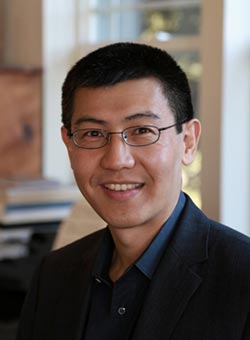 Over five years, I oversaw dozens of projects applying PCs, mobile phones, and custom electronics, to problems in education, agriculture, healthcare, governance, and microfinance. When I looked back to consider what differentiated the impactful projects, I found that it wasn’t the technology that mattered, but our partners’ dedication to social impact. Wherever the stakeholders were well-intentioned and capable, technology provided a positive boost; but where human institutions were corrupt, dysfunctional, or absent altogether, no amount of incredible technology turned things around. Technology’s primary effect wasn’t to add a net benefit, but to amplify underlying human forces.
Over five years, I oversaw dozens of projects applying PCs, mobile phones, and custom electronics, to problems in education, agriculture, healthcare, governance, and microfinance. When I looked back to consider what differentiated the impactful projects, I found that it wasn’t the technology that mattered, but our partners’ dedication to social impact. Wherever the stakeholders were well-intentioned and capable, technology provided a positive boost; but where human institutions were corrupt, dysfunctional, or absent altogether, no amount of incredible technology turned things around. Technology’s primary effect wasn’t to add a net benefit, but to amplify underlying human forces.
Amplification explains how it’s possible for technology to aid us in our personal lives while it fails to have value for others. We (that is, anyone likely to be reading this post) have the education, the economic means, and the social ties to capitalize on today’s incredible tools. In the same way that a power saw has different outcomes depending on whether it’s wielded by a professional carpenter or a novice, digital technology has different impact depending on whether its users are college-educated knowledge workers or urban migrants with a fourth-grade education.
This is starkly illustrated even in the United States by the fact that over the last four decades, we have experienced a golden age of innovation in which digital devices have penetrated every corner of the country. Yet, during that same period of time, poverty hasn’t declined and inequality has skyrocketed. Any idea that better technology more widely disseminated is a cure for poverty demands reconsideration.
What amplification ultimately says is that in a world of abundant technology, genuine human development should be our focus. Kelsa+ had one unexpected but very positive outcome: One of the security guards had been enrolled in an evening data-entry class. Since he didn’t have a PC at home, he used the Kelsa+ computer to practice his skills. One day, he handed in his resignation – he had passed his certification and had been offered a job as a data-entry professional, which offered far greater future prospects. Most of all, he was proud of the social standing it brought him: “Today I can stand up in front of my father and friends and say that I am no more a watchman, but I am doing a computer job.”
It’s easy to mistake this story to be one about technology, but look more closely, and it’s a story of genuine human development. Computer access mattered of course, but it didn’t result in a change for everyone. It had impact only where motivation, instruction, and encouragement converged. These are human qualities that gadgets just can’t deliver.
In my book, Geek Heresy, I tell stories highlighting what I think of as “heart, mind, and will.” Many have a Washington state connection: How, as a teacher at Seattle’s Technology Access Foundation, I had to change myself before my students could learn computer programming. How Ann Downer at the University of Washington mentored a low-income chauffeur in India to become the facilities manager for I-TECH’s India office. And, how Patrick Awuah’s transformation from Microsoft program manager to Ashesi University founder is changing the course of West Africa. What these stories reveal most of all is that there is no social change without change in people.
After moving away from Seattle last December, Toyama will be back in town for book talks at Seattle Town Hall on June 22, and University Book Store on June 24. He will also lead a lunchtime roundtable discussion with Global Washington members on June 24, and be the featured guest that evening at GlobalWA’s monthly happy hour. Toyama’s book, Geek Heresy: Rescuing Social Change from the Cult of Technology, is available now.
Member Events
June 18: Global Partnerships // Open House
June 25: Trade Development Alliance // Annual Dinner
July 18 – 21: RESULTS // International Conference
Career Center
Highlighted Positions
Development Manager – Global Visionaries
Director, Landesa Center for Women’s Land Rights – Landesa
Director, Business Development – Splash
For more jobs and resources, visit https://globalwa.org/resources/careers-in-development/
GlobalWA Events
June 24: Roundtable Discussion with Kentaro Toyama
June 24: Networking Happy Hour with Friends of GlobalWA, TASCHA, World Affairs Council and Humanosphere
September 16: New Member Orientation
December 10: GlobalWA 7th Annual Conference
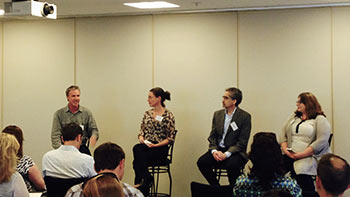 On June 9th, Global Washington hosted a panel discussion on the use of innovative technologies by social entrepreneurs. Panelists included: Ali Arjomand, Director of Analysis and Evaluation at Global Good; Beth Kolko, co-founder and CEO of Shift Labs; and Laura McLaughlin, Director of MSR Global Health. The discussion was moderated by Chris Coward, Principal Research Scientist and Director of the Technology & Social Change Group (TASCHA) at the University of Washington Information School. Humanosphere sponsored the event.
On June 9th, Global Washington hosted a panel discussion on the use of innovative technologies by social entrepreneurs. Panelists included: Ali Arjomand, Director of Analysis and Evaluation at Global Good; Beth Kolko, co-founder and CEO of Shift Labs; and Laura McLaughlin, Director of MSR Global Health. The discussion was moderated by Chris Coward, Principal Research Scientist and Director of the Technology & Social Change Group (TASCHA) at the University of Washington Information School. Humanosphere sponsored the event. Do you know someone doing great work connecting the Seattle area to the rest of the world?
Do you know someone doing great work connecting the Seattle area to the rest of the world? In India’s famous Hole-in-the-Wall project, ruggedized computers were placed in slums and rural villages for neighborhood children to use. Its founder, Sugata Mitra, claimed that with no supervision, children taught themselves computer literacy, English, and even molecular biology. Back in 2005 before the project became widely known, Mitra came to speak to a group of us about the project. We were a new research team in Bangalore that I had started while at Microsoft, with a mission to explore how digital technology could serve international development.
In India’s famous Hole-in-the-Wall project, ruggedized computers were placed in slums and rural villages for neighborhood children to use. Its founder, Sugata Mitra, claimed that with no supervision, children taught themselves computer literacy, English, and even molecular biology. Back in 2005 before the project became widely known, Mitra came to speak to a group of us about the project. We were a new research team in Bangalore that I had started while at Microsoft, with a mission to explore how digital technology could serve international development.

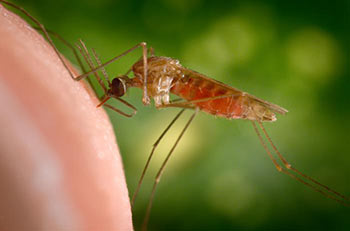
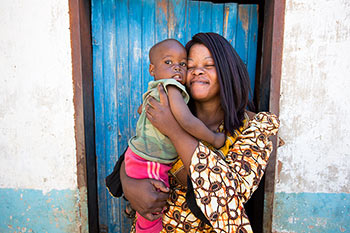
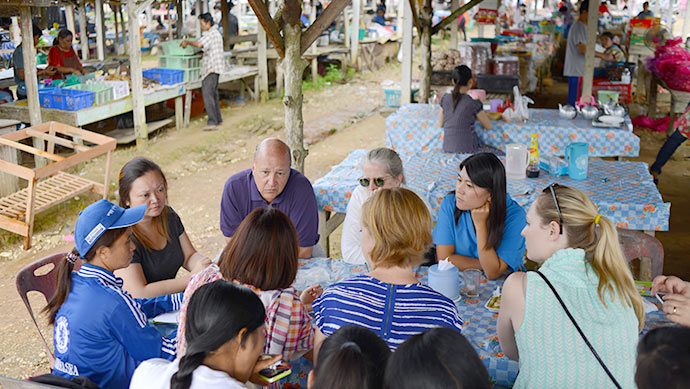 While fewer people die from malaria each year, MNM will not slow down the fight. “The reality of malaria is, if you take your foot off the gas, [malaria] comes roaring back. There have been 75 documented cases of resurgence in the last 85 years. Almost all of them were as a result of success,” explains Edlund. “We saw the malaria burden fall, and then countries shifted money away from malaria control, and malaria came back in a big way.” In short, malaria will continue to pose a threat until the disease is eliminated.
While fewer people die from malaria each year, MNM will not slow down the fight. “The reality of malaria is, if you take your foot off the gas, [malaria] comes roaring back. There have been 75 documented cases of resurgence in the last 85 years. Almost all of them were as a result of success,” explains Edlund. “We saw the malaria burden fall, and then countries shifted money away from malaria control, and malaria came back in a big way.” In short, malaria will continue to pose a threat until the disease is eliminated.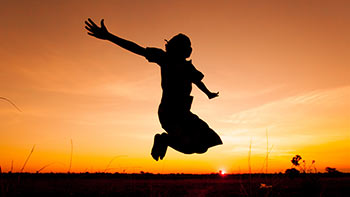
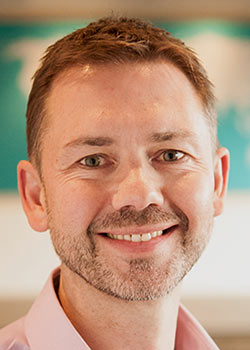 Ashley Birkett, the director of the
Ashley Birkett, the director of the 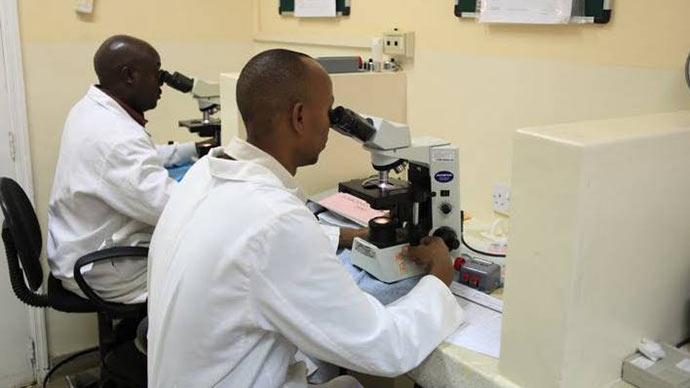
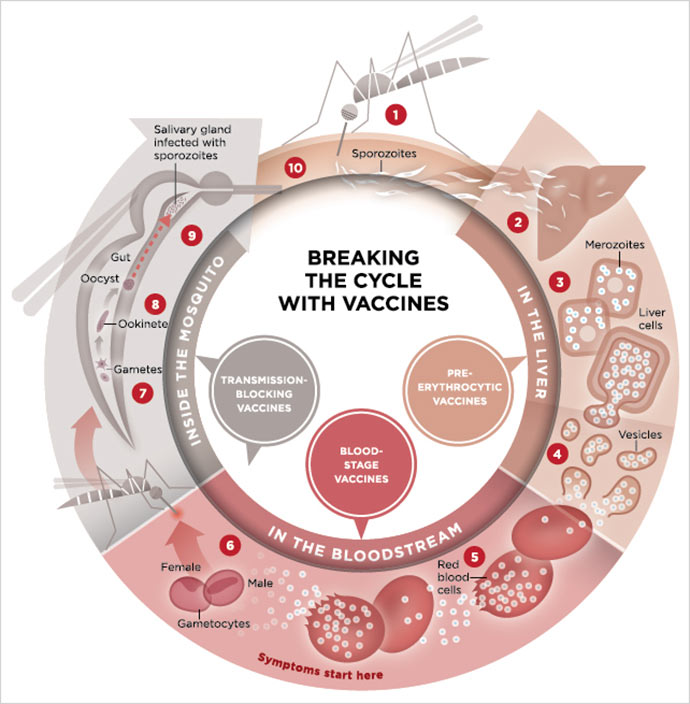
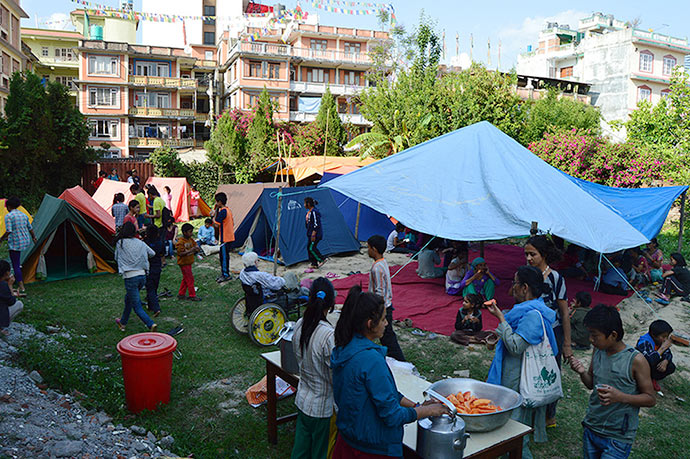
 On April 25, a devastating 7.8-magnitude earthquake struck 50 miles outside of Nepal’s densely populated capital city of Kathmandu and the government quickly declared a state of emergency. Washington state responded quickly with a number of Global Washington members rushing to help victims of the quake by providing lifesaving supplies and services, medical assistance and shelter.
On April 25, a devastating 7.8-magnitude earthquake struck 50 miles outside of Nepal’s densely populated capital city of Kathmandu and the government quickly declared a state of emergency. Washington state responded quickly with a number of Global Washington members rushing to help victims of the quake by providing lifesaving supplies and services, medical assistance and shelter.